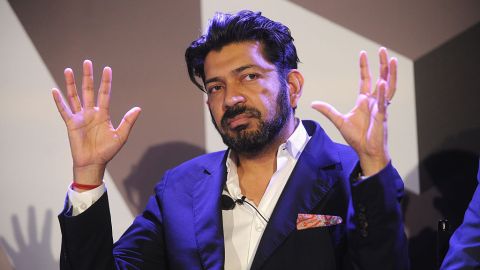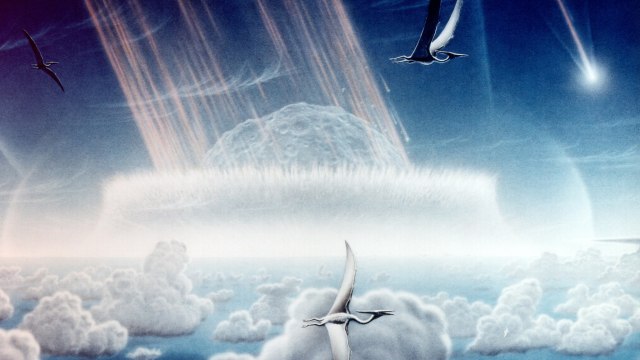10 science books that will make you see the world differently

Science is often counterintuitive. When we become habituated to our environment our frame of reference reflects the minds of those around us and the geography we live within. Good science doesn’t lean on anecdote; it constantly pushes us to think and act better. The following books push boundaries by confronting common wisdom and updating our collective knowledge through a combination of research, integrity, curiosity, and passion.
The Age of Wonder by Richard Holmes
Starting with a history book might seem odd, but without a firm understanding of how germ theory, disease specificity, and the placebo response—among other important breakthroughs — came to be, you won’t be grounded in what we now consider basic knowledge. British biographer Richard Holmes does justice to the evolution of eighteenth and nineteenth century science.
We need the three things that a scientific culture can sustain: the sense of individual wonder, the power of hope, and the vivid but questing belief in a future for the globe.
Behave: The Biology of Humans at Our Best and Worst by Robert Sapolsky
If you want to know why humans behave how we do, start with American neuroendocrinologist Robert Sapolsky’s tour de force. Having spent time studying baboons in Kenya, here he trains his gaze on the peculiar, outlandish, and even mundane aspects of humans, traversing neuroscience, psychology, sociology, and anthropology to better comprehend what makes us us.
We are constantly being shaped by seemingly irrelevant stimuli, subliminal information, and internal forces we don’t know a thing about.
The Body Keeps the Score: Brain, Mind, and Body in the Healing of Trauma by Bessel van der Kolk
Dutch psychiatrist Bessel van der Kolk began studying post-traumatic stress in the seventies. His masterful work stretches across decades of research in an attempt to piece together a clinical and heartfelt approach to trauma. His understanding of the biology and physicality of his discipline is unmatched.
We have learned that trauma is not just an event that took place sometime in the past; it is also the imprint left by that experience on mind, brain, and body. This imprint has ongoing consequences for how the human organism manages to survive in the present.
The Brain’s Way of Healing by Norman Doidge
Canadian psychoanalyst Norman Doidge is also a poet, a fact that became apparent with his breakthrough book, The Brain That Changes Itself. His follow-up addresses important issues that research these and more in his beautiful prose. Including an entire chapter on the work of movement genius Moshé Feldenkrais added an even bigger smile to my face.
“The use of force is the opposite of awareness; learning does not take place when we are straining.”
The Emperor of All Maladies: A Biography of Cancer by Siddhartha Mukherjee
I first read Indian-American physician Siddhartha Mukherjee’s debut out of curiosity. A few years later it offered comfort when dealing with my own cancer. His gorgeous style and sympathetic approach, displayed as a columnist for The New Yorker and NY Times, portrays cancer as an integral part of what we are as animals. His follow-up to this exhaustive biography is the highly recommended The Gene. On Twitter he told me his final installment of what he considers to be a trio will be on vaccines. Plenty to look forward to from this masterful writer.
Cancer is built into our genomes: the genes that unmoor normal cell division are not foreign to our bodies, but rather mutated, distorted versions of the very genes that perform vital cellular functions. And cancer is imprinted in our society: as we extend our life span as a species, we inevitably unleash malignant growth (mutations in cancer genes accumulate with aging; cancer is thus intrinsically related to age). If we seek immortality, then so, too, in a rather perverse sense, does the cancer cell.
How Emotions Are Made: The Secret Life of the Brain by Lisa Feldman Barrett
Psychology professor Lisa Feldman Barrett presents one of the most counterintuitive books in recent memory by claiming that we don’t react to our environment so much as constantly construct our reality. This groundbreaking work will change how you view your inner world forever, empowering you with the knowledge that pretty much every “reaction” can be changed. (Listen to my chat with her here.)
With concepts, your brain simulates so invisibly and automatically that vision, hearing, and your other senses seem like reflexes rather than constructions.
The Organized Mind by Daniel J. Levitin
Inattention is one of our greatest modern problems. We know cigarettes and alcohol are addictive; we’ve come to terms with opioids. Sugar is a killer, one few give up. Yet we seem light years from admitting what technology is doing to our brains. Neuroscientist Dan Levitin’s insightful book will change how you view tech—and your life. Fortunately it’s all for the better, should you heed his advice.
“Evolution doesn’t design things and it doesn’t build systems—it settles on systems that, historically, conveyed a survival benefit (and if a better way comes along, it will adopt that). There is no overarching, grand planner engineering the systems so that they work harmoniously together. The brain is more like a big, old house with piecemeal renovations done on every floor, and less like a new construction.”
Other Minds: The Octopus, the Sea, and the Deep Origins of Consciousness by Peter Godfrey Smith
Australian philosopher and professor Peter Godfrey Smith has exposed the unworldly reality of the octopus in such candor that we’ll never view this incredible cephalopod the same way. In the process he offers keen insights into the development of sentience and intelligence throughout the animal kingdom, humans included.
To some degree, unity is inevitable in a living agent: an animal is a whole, a physical object keeping itself alive. But in other ways, unity is optional, an achievement, an invention. Bringing experience together — even the deliverances of the two eyes—is something that evolution may or may not do.
The Story of the Human Body: Evolution, Health, and Disease by Daniel Lieberman
To wrap your head around any facet of human biology, anatomy, and physiology, start with Harvard paleoanthropologist Daniel Lieberman. This eye-opening masterpiece explores the intricate details of digestion as well as our posture and feet, forcing us to reconsider movement patterns and cognitive habits that are actually killing us. His deep dive into mismatch diseases will inspire you to change the course of your day.
By developing through myriad interactions between genes and environments, organisms are able to build extremely complex, highly integrated bodies that not only work well, but also can adapt to a wide range of circumstances.
The Well-Tuned Brain: A Remedy for a Manic Society by Peter C Whybrow, MD
Scouring through the innumerable books with “brain” in the title is challenging, as neuroscience has become a catchword for every possible agenda. English psychiatrist Peter C. Whybrow takes a truly unique and essential take when discussing capitalism’s effects on our behavior. He argues that many technological advances are actually enslaving us; our survival as a species is under threat due to our reliance on what’s being sold.
We find ourselves rewarded less in the role of concerned citizen than in that of self-seeking consumer. Through habituation, we have grown indifferent to those aspects of human culture that fall outside market reference.
—
Derek Beres is the author of Whole Motion: Training Your Brain and Body For Optimal Health. Based in Los Angeles, he is working on a new book about spiritual consumerism. Stay in touch on Facebook and Twitter.





